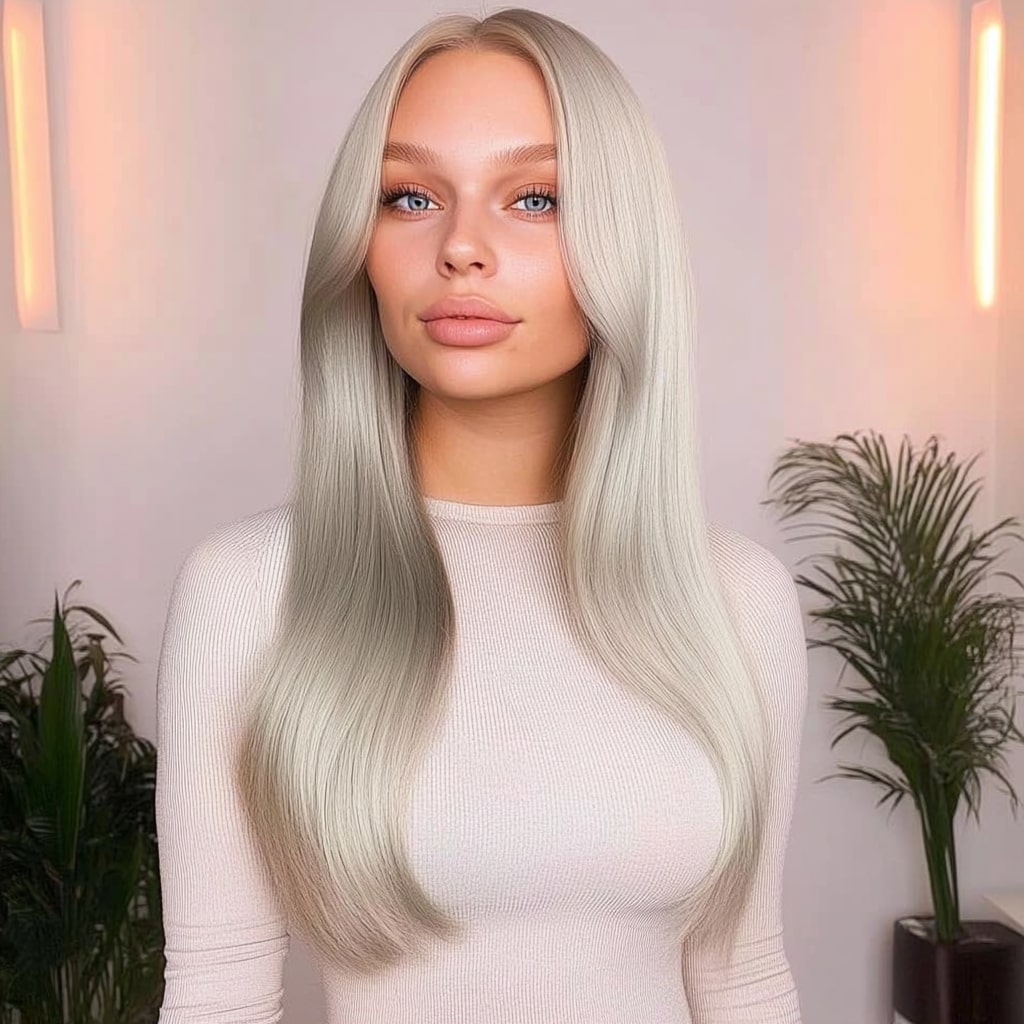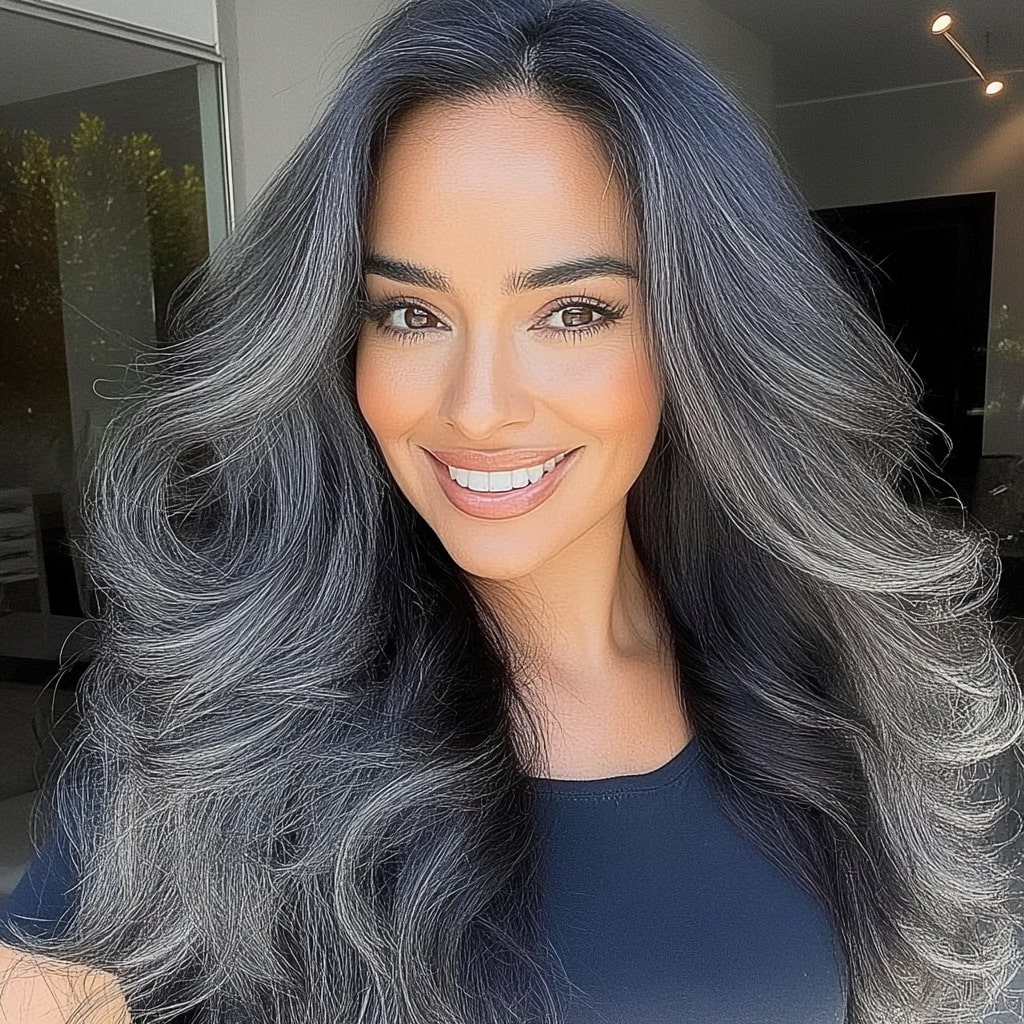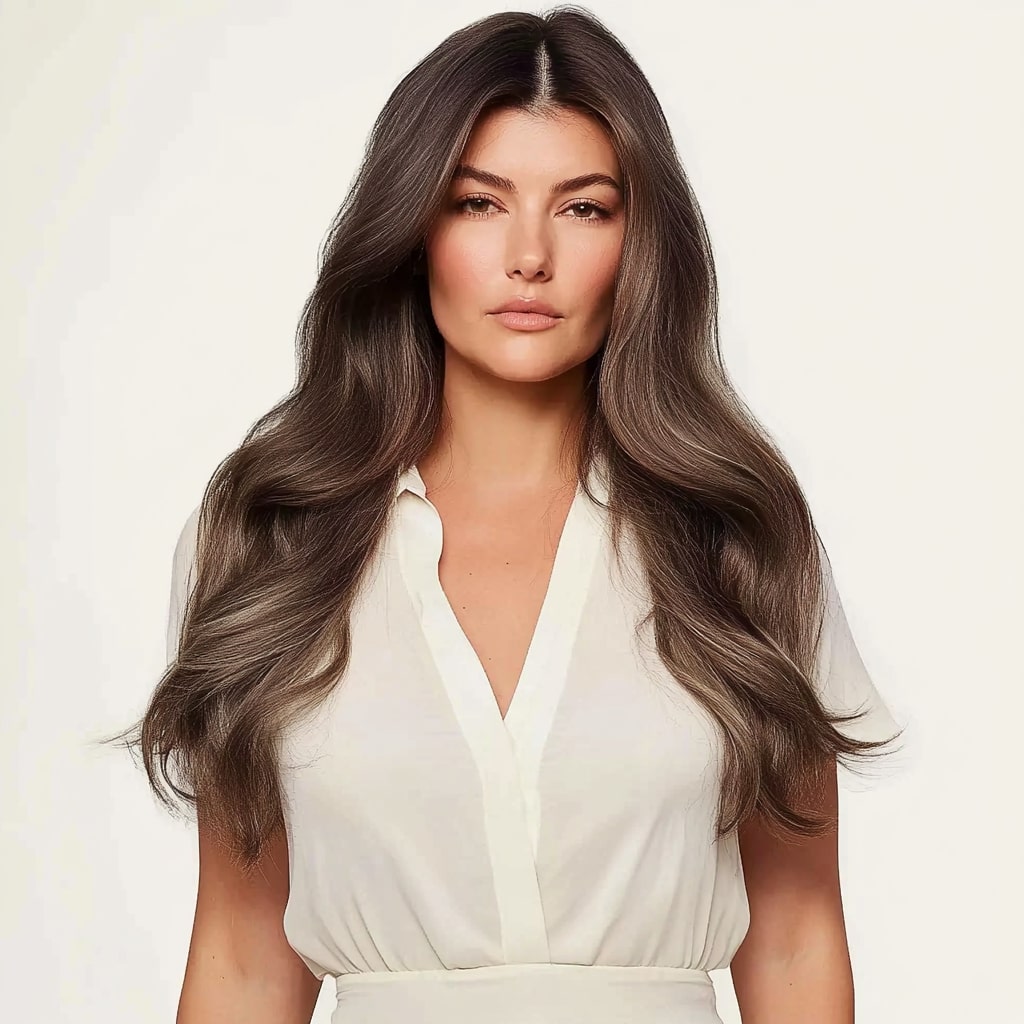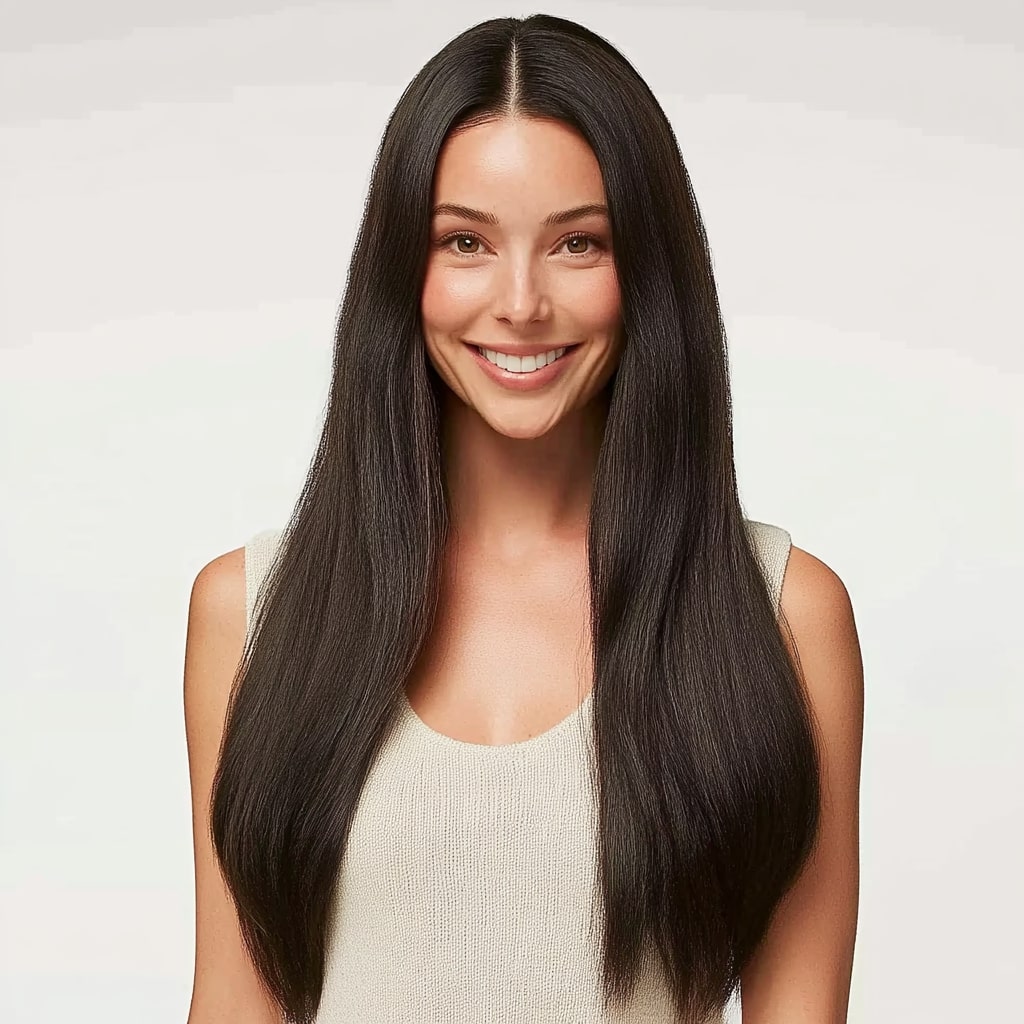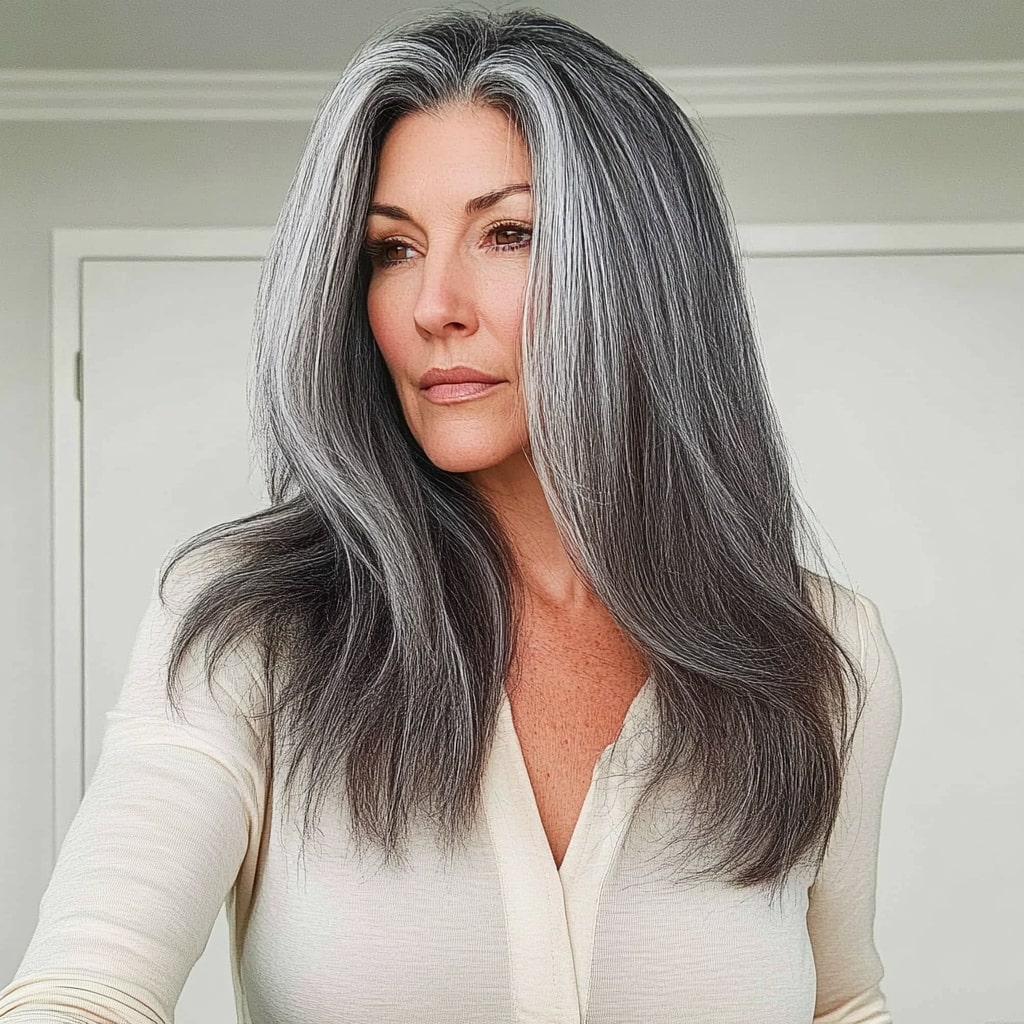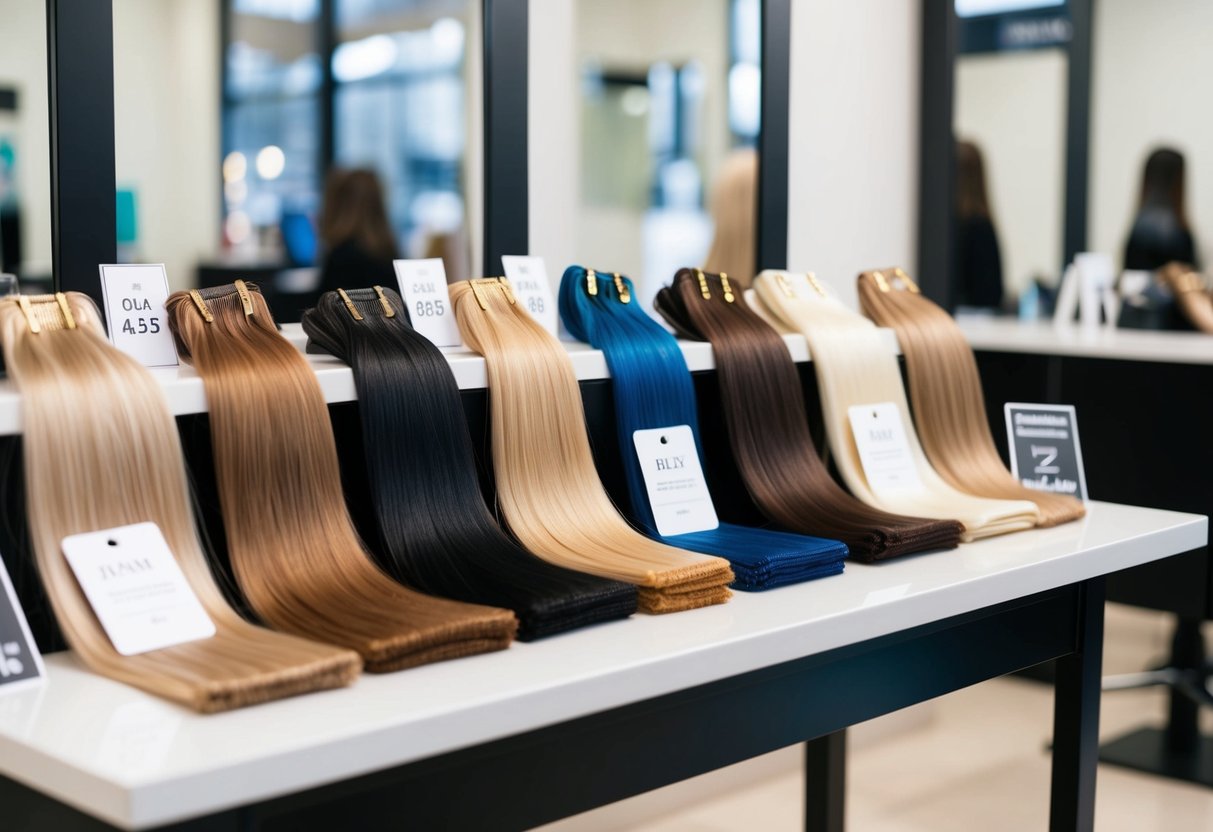Cultural Appropriation vs. Appreciation in Hair Extensions: Navigating the Debate

Key Takeaways
- Cultural appropriation in hair extensions involves using culturally significant hairstyles without respect or understanding of their origins.
- Cultural appreciation means engaging with and respecting the cultural significance of hairstyles.
- Hair holds deep historical and cultural significance across various cultures.
- Ethical considerations for wearing hair extensions include understanding cultural context, sourcing ethically, and acknowledging cultural roots.
- Best practices for respectful hair extension use involve education, supporting cultural businesses, and avoiding stereotypes.
- USA Hair is committed to ethical hair practices, including fair sourcing, cultural respect, and community support.
Introduction
The world of hair extensions is diverse and vibrant, offering a multitude of styles, textures, and colors to suit every individual's unique preferences. However, as this industry grows, so does the conversation around cultural appropriation versus appreciation. This debate centers on whether it is respectful for individuals to wear hair extensions that originate from cultures other than their own. In this blog post, we will explore the nuances of this discussion, highlighting the importance of understanding cultural significance, showing respect, and promoting appreciation over appropriation in the use of hair extensions.
Understanding Cultural Appropriation and Appreciation
Cultural appropriation occurs when elements of a minority culture are taken and used by members of a dominant culture, often without permission or understanding of their significance. This can lead to the commodification and exploitation of cultural traditions, reducing them to mere fashion statements and stripping them of their original meaning.
On the other hand, cultural appreciation involves recognizing, respecting, and valuing the cultural significance of these elements. It means engaging with another culture in a way that is informed, respectful, and honors the origin and meaning behind these traditions. In the context of hair extensions, appreciation would involve understanding the historical and cultural importance of certain hairstyles and textures, and wearing them in a way that respects their origins.
Historical Context of Hair and Cultural Identity
Hair has always played a significant role in cultural identity and expression. In many cultures, hair is more than just a personal style choice; it is a symbol of heritage, status, and beliefs. For instance, African hairstyles such as braids, dreadlocks, and afros carry deep historical and cultural significance, representing a rich heritage and a form of resistance against oppression.
Similarly, hairstyles in Asian cultures, like the intricate styles seen in traditional Chinese and Japanese attire, or the ceremonial use of hair in Indigenous cultures, hold profound meanings. These styles are often passed down through generations, embodying cultural values, traditions, and history. Understanding this context is crucial when engaging with hair extensions that mimic these traditional styles, as it fosters a deeper respect for the cultural significance they carry.
Hair Extensions and Cultural Significance
Hair extensions are not merely a cosmetic enhancement; they often carry cultural significance that reflects the heritage and identity of their origins. For example, Indian hair extensions are highly valued for their quality and are often tied to religious practices, where hair is donated as an act of devotion.
African hair textures, replicated in extensions, are deeply connected to cultural practices and social symbolism. Styles such as box braids, cornrows, and locs are not just fashion statements but are rooted in African traditions and storytelling.
When individuals from different cultural backgrounds choose to wear these hair extensions, it is essential to recognize and respect their origins. This understanding helps to avoid the pitfalls of cultural appropriation and instead promotes a genuine appreciation for the diverse beauty and significance of these hairstyles.
Examples of Cultural Appropriation in Hair Extensions
Cultural appropriation in hair extensions occurs when styles and textures that are historically and culturally significant are adopted without acknowledgment or respect for their origins. One prominent example is the adoption of African hairstyles, such as cornrows or dreadlocks, by individuals outside the African diaspora without understanding their historical and cultural significance. This can reduce these meaningful styles to mere trends, stripping them of their rich cultural context.
Another example is the use of Native American hairstyles or adornments in fashion without permission or understanding. These styles are often sacred and have specific meanings within their cultures. When used inappropriately, it can be deeply offensive to those who hold these traditions dear.
These instances highlight the importance of mindful engagement with cultural elements, ensuring that wearing such styles is done with respect, acknowledgment, and an understanding of their significance.
Positive Examples of Cultural Appreciation in Hair Extensions
Cultural appreciation in hair extensions is demonstrated when individuals engage with different hairstyles and textures in a respectful and informed manner. One positive example is when people take the time to learn about the origins and significance of the styles they choose to wear. This might involve researching the history of African braids or understanding the cultural importance of Indian hair donations.
Another positive example is collaboration and support of the cultures from which these hairstyles originate. This could include purchasing hair extensions from businesses owned by members of the respective culture, thereby supporting the community and acknowledging the cultural contribution.
Additionally, public figures and influencers who wear culturally significant hairstyles while openly discussing their origins and significance contribute to a broader understanding and respect for these styles. By promoting the story behind the hairstyle and giving credit to its cultural roots, they help shift the narrative from appropriation to appreciation.
These practices foster a respectful exchange and celebrate the beauty of cultural diversity, ensuring that the use of hair extensions is done in a way that honors and uplifts the cultures they represent.
Ethical Considerations for Wearing Hair Extensions
When choosing to wear hair extensions, ethical considerations play a crucial role in ensuring respect for cultural significance and promoting responsible consumption. Here are key factors to consider:
Understanding Cultural Context
Before adopting a hairstyle, it's essential to educate oneself about its cultural origins and significance. This understanding fosters respect and appreciation, ensuring that the style is not used in a way that diminishes its cultural value.
Sourcing Ethically
Ensuring that hair extensions are sourced ethically is another important consideration. This involves choosing suppliers who respect the cultural and ethical dimensions of hair procurement. For instance, buying from companies that ensure fair trade practices and support the communities from which the hair is sourced.
Acknowledging Cultural Roots
When wearing hairstyles from different cultures, openly acknowledging and respecting their origins can help combat appropriation. This acknowledgment can be through conversations, social media, or even supporting educational initiatives about the cultural significance of these styles.
Avoiding Stereotyping
It's crucial to avoid perpetuating stereotypes or using cultural elements in a way that can be seen as mocking or disrespectful. Wearing a hairstyle should not involve mimicking or trivializing the culture it originates from.
Promoting Inclusivity
Promoting inclusivity means supporting and celebrating diversity in all forms. This can be reflected in personal choices and business practices, ensuring that cultural exchange is done with mutual respect and understanding.
By considering these ethical aspects, individuals can navigate the complex landscape of cultural appropriation versus appreciation with sensitivity and respect, promoting a more inclusive and respectful approach to wearing hair extensions.
Best Practices for Respectful Hair Extension Use
To ensure that wearing hair extensions is done respectfully and ethically, consider the following best practices:
Educate Yourself
Take the time to learn about the cultural significance of the hairstyles and textures you are interested in. Understanding their historical and cultural contexts can help you appreciate them more deeply and wear them with respect.
Choose Reputable Suppliers
Support businesses that prioritize ethical sourcing and fair trade practices. Ensure that the hair extensions you purchase are sourced in a manner that respects the communities and cultures they come from. USA Hair, for example, is committed to these principles, ensuring that all hair extensions are ethically sourced.
Give Credit and Acknowledge Origins
When sharing your new hairstyle with others, whether in person or on social media, acknowledge its cultural roots. Giving credit helps raise awareness and appreciation for the culture from which the style originates.
Support Cultural Businesses
Consider purchasing hair extensions and other hair products from businesses owned by members of the respective culture. This not only supports the community economically but also helps preserve and celebrate cultural traditions.
Avoid Stereotypical Representations
Be mindful not to wear hairstyles in ways that perpetuate stereotypes or trivialize cultural practices. Respect the integrity and significance of the style.
Engage in Cultural Exchange
Cultural exchange should be mutual and respectful. Engage with the culture in a way that honors its traditions and contributes to a deeper understanding and appreciation.
By following these best practices, you can enjoy the beauty and diversity of hair extensions while respecting and honoring their cultural significance. This approach promotes a more inclusive and appreciative use of cultural hairstyles.
USA Hair's Commitment to Ethical Hair Practices
At USA Hair, we recognize the importance of respecting cultural heritage and ensuring ethical practices in the hair extension industry. Our commitment to ethical hair practices is reflected in every aspect of our business, from sourcing to customer engagement.
Ethical Sourcing
We prioritize sourcing hair extensions from suppliers who adhere to fair trade principles and ethical standards. This ensures that the hair we offer is obtained in a manner that respects the donors and their communities. Our suppliers are carefully vetted to ensure they comply with our stringent ethical guidelines.
Cultural Respect
We understand the cultural significance of different hairstyles and textures. Our approach is to celebrate and honor these traditions by providing information and education about the origins and significance of the styles we offer. We believe that informed customers are respectful customers.
Support for Communities
USA Hair actively supports the communities from which we source our hair. This includes fair compensation for hair donors and investments in community development projects. We believe in giving back and ensuring that the benefits of our business extend to those who contribute to it.
Transparency
We maintain transparency in our sourcing and business practices. Customers can trust that the hair extensions they purchase from USA Hair are ethically sourced and that their purchase supports ethical and sustainable practices.
Customer Education
We provide resources and information to help our customers make informed choices. This includes education on the cultural significance of different hair styles and best practices for respectful use. We believe that promoting awareness and understanding is key to fostering appreciation over appropriation.
By choosing USA Hair, you are supporting a business that values and practices ethical sourcing and cultural respect. Our commitment to these principles ensures that you can enjoy beautiful, high-quality hair extensions while honoring the cultures they represent.
Conclusion
The debate between cultural appropriation and appreciation in the use of hair extensions is complex and nuanced. It is essential to approach this topic with sensitivity, respect, and a genuine desire to understand and honor the cultural significance of the hairstyles we choose to wear. By educating ourselves, supporting ethical practices, and acknowledging the origins of the styles we adopt, we can move towards a more respectful and appreciative engagement with diverse cultural traditions.
At USA Hair, we are dedicated to promoting ethical hair practices and cultural respect, ensuring that our customers can enjoy beautiful hair extensions while honoring the rich histories and traditions they represent. By making informed and respectful choices, we can celebrate the diversity and beauty of cultural hairstyles in a way that uplifts and respects all communities.
FAQ
-
What is cultural appropriation in hair extensions? Cultural appropriation occurs when elements of a minority culture are adopted by a dominant culture without understanding or respecting their significance.
-
What is the difference between cultural appropriation and appreciation? Cultural appropriation is taking elements of another culture without respect or understanding, while cultural appreciation involves recognizing, respecting, and valuing those cultural elements.
-
Why is understanding cultural context important when wearing hair extensions? Understanding the cultural context helps avoid reducing meaningful styles to mere trends and ensures respect for the cultural significance of the hairstyle.
-
How can I ensure I am sourcing hair extensions ethically? Purchase from reputable suppliers who adhere to fair trade principles and ethical standards, such as USA Hair.
-
What are some best practices for wearing culturally significant hairstyles? Educate yourself about the origins, choose reputable suppliers, acknowledge cultural roots, support cultural businesses, avoid stereotypes, and engage in cultural exchange respectfully.
-
How does USA Hair ensure ethical sourcing? USA Hair carefully vets suppliers to ensure they follow ethical guidelines and fair trade principles, ensuring fair compensation and respect for hair donors.
-
Why is transparency important in the hair extension industry? Transparency builds trust and ensures customers are aware of the ethical and cultural considerations involved in their purchase.
-
How can I show respect for the cultural origins of my hairstyle? Acknowledge the cultural roots in conversations and on social media, and avoid using the style in a way that perpetuates stereotypes or trivializes the culture.
-
What role does customer education play in ethical hair practices? Educated customers make informed and respectful choices, promoting cultural appreciation over appropriation.
-
How does USA Hair support the communities from which it sources hair? USA Hair supports community development projects and ensures fair compensation for hair donors, giving back to the communities involved.

 My Store Credit
My Store Credit
 Buy Again
Buy Again
